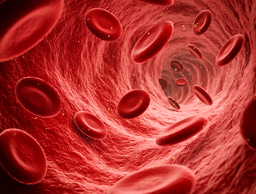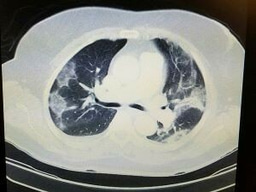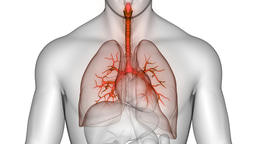Call for papers: Cell and molecular therapy for cardiovascular disorders
Published in Healthcare & Nursing and General & Internal Medicine

BMC Cardiovascular Disorders is calling for submissions to our Collection on cell and molecular therapy for cardiovascular diseases. Scientists from around the globe are investigating/leveraging cell and molecular-based strategies to protect, regenerate, replace, and restore the function of cardiac and vascular tissue. Advances in basic and clinical research have yielded encouraging findings highlighting the promise of such strategies to treat a range of CVDs. However, gaps in our knowledge remain and further research is required to translate findings from basic research into the clinic.
In support of SDG 3: Good Health & Wellbeing, BMC Cardiovascular Disorders calls for papers exploring the potential of stem cells, gene editing, tissue engineering, disease modeling, and organoids to improve our understanding of cardiovascular diseases and open new avenues for therapeutic intervention.
Meet the Guest Editors
Sherin Saheera: University of Massachusetts Chan Medical School, USDr Sherin Saheera completed her PhD in India in 2017 and went to the US to pursue her postdoctoral studies. After a year of training at the University of Alabama at Birmingham, she is currently working as a Postdoctoral Associate at the University of Massachusetts, Chan Medical School, where she has been since January 2019. She has over 18 publications in peer reviewed high impact journals and has been serving as an editorial board member and reviewer for reputed journals. She has also presented papers in several national and international conferences.
Huiliang Zhang: University of Arkansas for Medical Sciences, US
Dr Zhang’s research focuses on cardiac dysfunction in the aging heart with an emphasis on the pathogenic role of elevated proton leak from mitochondria. He explores the strategies for restoring mitochondrial function and stem cell therapies to reverse cardiac dysfunction in preclinical models of aging. Dr. Zhang is the principal investigator of the NIH R35 grant and the American Heart Association (AHA) Career Development Award. Dr. Zhang served in NIH and AHA study sections. He has nearly 40 original publications and has won several national trainee and junior faculty awards.
Submission Guidelines
This Collection welcomes submission of original Research Articles. Should you wish to submit a different article type, please read our submission guidelines to confirm that type is accepted by the journal. Articles for this Collection should be submitted via our submission system, Snapp. During the submission process you will be asked whether you are submitting to a Collection, please select "Cell and molecular therapy for cardiovascular disorders" from the dropdown menu.Articles will undergo the journal’s standard peer-review process and are subject to all of the journal’s standard policies. Articles will be added to the Collection as they are published.
The Editors have no competing interests with the submissions which they handle through the peer review process. The peer review of any submissions for which the Editors have competing interests is handled by another Editorial Board Member who has no competing interests.
Submission Status: Open | Submission Deadline: 21 June 2024
Follow the Topic
-
BMC Cardiovascular Disorders

This journal is an open access, peer-reviewed journal that considers articles on the characterization, prevention, diagnosis and treatment of disorders of the heart and circulatory system.
Related Collections
With Collections, you can get published faster and increase your visibility.
Pediatric cardiovascular disease
BMC Cardiovascular Disorders is calling for submissions to our Collection focusing on Pediatric cardiovascular disease, which encompasses a wide array of conditions affecting the heart and blood vessels in children, ranging from congenital heart defects to acquired heart diseases. With advancements in diagnostic techniques and treatment options, there has been a significant evolution in our understanding of these conditions. This Collection aims to gather research that addresses the complexities of pediatric cardiovascular disease. By focusing on this critical area, we aim to highlight the unique challenges and opportunities in the prevention and management of heart disease in infants, children, and adolescents.
Advancements in pediatric cardiology have led to improved outcomes for children with heart disease, particularly through early detection and intervention strategies. The development of minimally invasive surgical techniques and advanced imaging modalities has transformed treatment paradigms, allowing for better management of congenital and acquired conditions. Additionally, growing awareness of the importance of cardiovascular health during childhood has prompted initiatives aimed at prevention, education, and research. Continued investigation into the genetic, environmental, and lifestyle factors influencing pediatric cardiovascular disease is vital for enhancing care and outcomes for affected children.
Topics of interest for this Collection include but are not limited to:
- Epidemiology of pediatric cardiovascular disease
- Advances in treatment for congenital heart defects
- Impact of lifestyle factors on children's heart health
- Long-term outcomes for pediatric heart disease patients
This Collection supports and amplifies research related to SDG 3: Good Health and Well Being.
Publishing Model: Open Access
Deadline: Jul 08, 2026
Mitochondrial dysfunction in cardiovascular disease
BMC Cardiovascular Disorders is calling for submissions to our Collection on Mitochondrial dysfunction in cardiovascular disease. Mitochondrial dysfunction has emerged as a critical factor in the pathogenesis of cardiovascular diseases, including heart disease. These organelles are integral to energy production, cellular metabolism, and the regulation of reactive oxygen species. Disturbances in mitochondrial function can lead to impaired ATP synthesis, increased oxidative stress, and ultimately contribute to the development and progression of cardiovascular conditions. Understanding the intricate relationship between mitochondrial health and cardiovascular disease is essential for developing targeted therapeutic strategies.
Recent advancements have highlighted the role of genetically inherited mitochondrial mutations in conditions such as maternally inherited essential hypertension and coronary heart disease. Future studies may elucidate the specific pathways linking mitochondrial dysfunction to cardiovascular disease, paving the way for the development of targeted interventions. Innovations in gene therapy and mitochondrial-targeted antioxidants could revolutionize treatment approaches, enhancing not only the management of existing cardiovascular diseases but also offering preventive strategies for at-risk populations.
•Topics of interest include but are not limited to:
•Role of mitochondria in heart disease
•Mitochondrial dysfunction and oxidative phosphorylation
•Genetically inherited mitochondrial mutations in cardiovascular disease
•Impact of reactive oxygen species on cardiovascular health
•Mitochondrial metabolism and ATP production in heart function
This Collection supports and amplifies research related to SDG 3: Good Health and Well Being.
Publishing Model: Open Access
Deadline: Apr 30, 2026





Please sign in or register for FREE
If you are a registered user on Research Communities by Springer Nature, please sign in